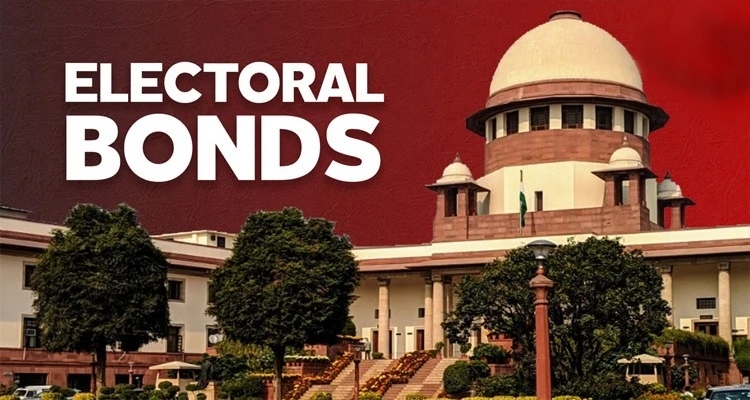
The Supreme Court on Friday scheduled a hearing for a public interest litigation (PIL) seeking a court-monitored investigation into the electoral bonds scheme for July 22.
A bench of CJI D Y Chandrachud along with Justices JB Pardiwala and Manoj Misra acknowledged the submissions of lawyer Prashant Bhushan and stated that the PIL, filed by two NGOs-Common Cause and the Centre for Public Interest Litigation (CPIL) is set for hearing on Monday.
The bench also noted that a similar plea, which was listed for Friday, would be heard together with the previous PIL on July 22.
The earlier PIL by the two NGOs alleges an “apparent quid pro quo” between political parties, corporations, and investigative agencies.
The plea, describing the electoral bonds scheme as a “scam,” seeks a directive for authorities to investigate the source of funding from “shell companies and loss-making companies” that made donations to various political parties, as disclosed by data from the Election Commission (EC).
The petition also requests a directive for authorities to recover funds donated by companies found to be part of “quid pro quo arrangements” if these funds are identified as proceeds of crime.
On February 15, a five-judge Constitution bench had invalidated the electoral bonds scheme of anonymous political funding introduced by the BJP government. Following this judgment, the State Bank of India, the authorized financial institution under the scheme, shared the data with the EC, which subsequently made it public.
Notified on January 2, 2018, the electoral bonds scheme was intended as an alternative to cash donations to political parties and aimed to enhance transparency in political funding.
The plea argued that the electoral bond scam has a money trail, unlike the 2G scam or the coal scam, where allocations were arbitrary but lacked a money trail. It pointed out that the court had ordered court-monitored investigations in those cases, appointed special public prosecutors, and formed special courts. The plea also claimed that several firms under investigation by these agencies had donated large sums to the ruling party, potentially influencing the outcome of investigations.




